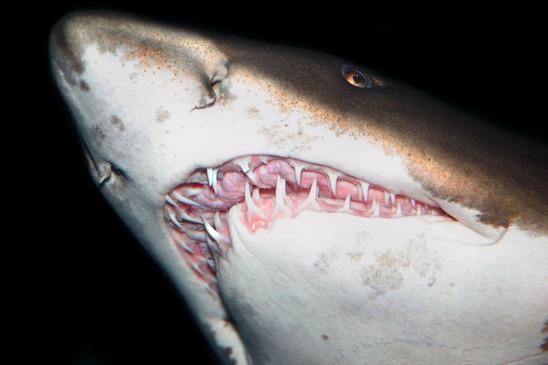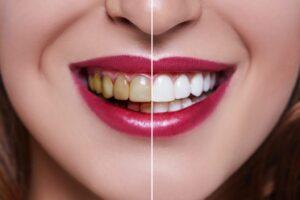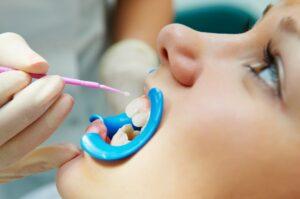Let’s just establish something right from the start: sharks are awesome. I’m a big fan of sharks and I’m proud to admit that I’m counting down the days until Discovery Channel’s annual Shark Week (July 5th through July 12th, earlier than last year so don’t miss it!). Some recent genetic research on shark genomes has paved the way for some really interesting future research on regenerating human teeth.
https://www.sheffield.ac.uk/news/nr/shark-teeth-human-tooth-loss-study-1.548598
Before getting into genetics, let’s marvel about how cool shark mouths are for a moment. These amazing animals can have upwards of 3000 teeth at a time (compare that with the human cap of 32 teeth) which are arranged in multiple rows. While human teeth are embedded within the jaw bones, shark teeth are supported by gum tissue only. Although they are easily lost, each of these teeth can be completely regrown in a period of days or months. The teeth in front of a shark’s mouth are their oldest teeth while the teeth in the back are still maturing; in essence this creates a biological conveyor belt where teeth drift forward as they age. Over an average lifetime some shark species can shed 35,000 teeth. Shark teeth are also known for their characteristic shape and function. While human teeth have a variety of shapes and functions, most species of shark have razor sharp triangular teeth that serve one purpose: catching and tearing apart prey (although a few rare shark species which feed on mollusks have teeth for crushing).
Although they are seemingly very different, shark and human teeth have been known to have a few similarities. For instance, shark teeth and human teeth have similar building blocks; both are mostly made of a semi-hard mineral substance called dentin and their surface hardness is nearly equal. The similarities go much deeper than this though. A team from the Department of Animal and Plant Sciences at the University of Sheffield (England) have found the genes responsible for tooth development and regeneration in sharks. It turns out that we have the same coding in our human genome!
The cells responsible for tooth formation are grouped in structures called dental laminas. Sharks have active dental lamina cells throughout their lifetime, but in humans, the dental lamina becomes smaller in adolescence and is eventually lost after adult teeth are fully formed. More research is needed to find the triggers and controlling mechanisms that govern how the dental lamina behaves, but the Sheffield team hopes to one day find the solution to human tooth regeneration. This may one day be very big news for dentistry. At this time prosthetics such as implants and bridges (or dentures in more extreme cases) are the only solution to tooth loss.
-Nicolas K. Young, DMD








